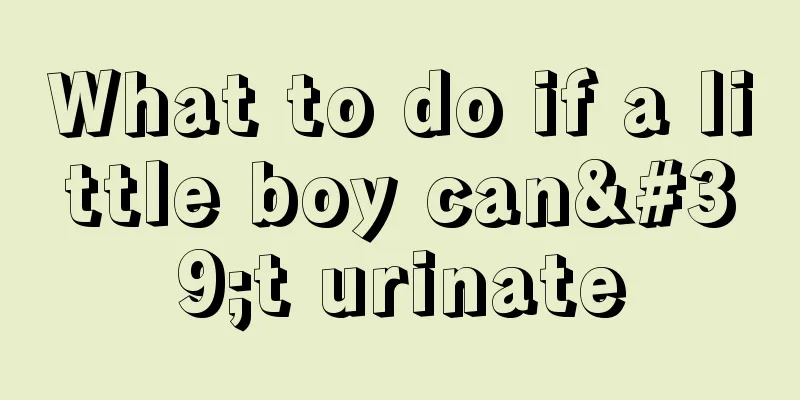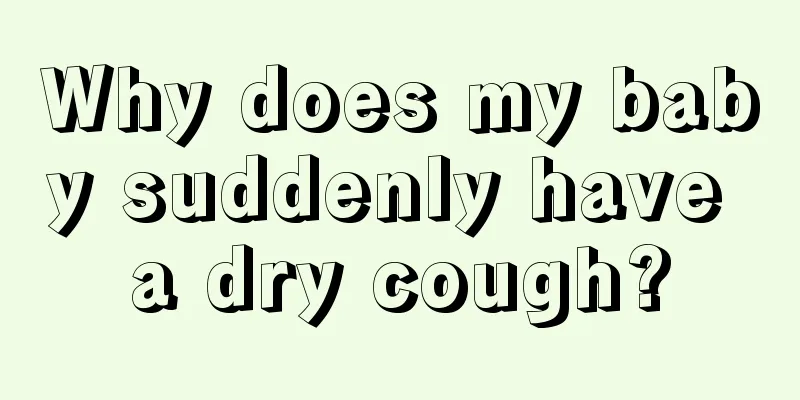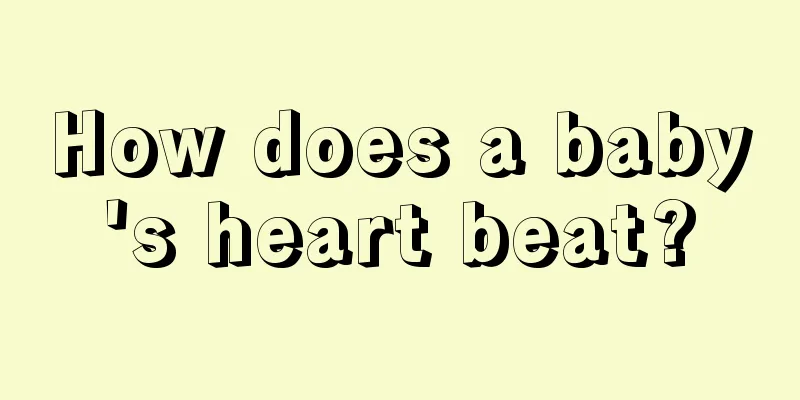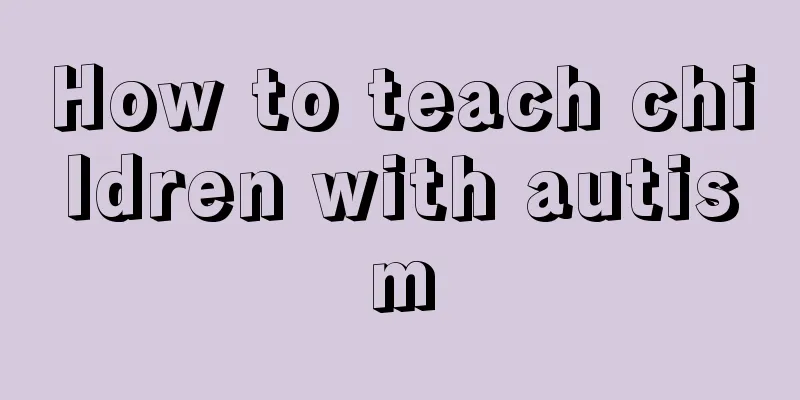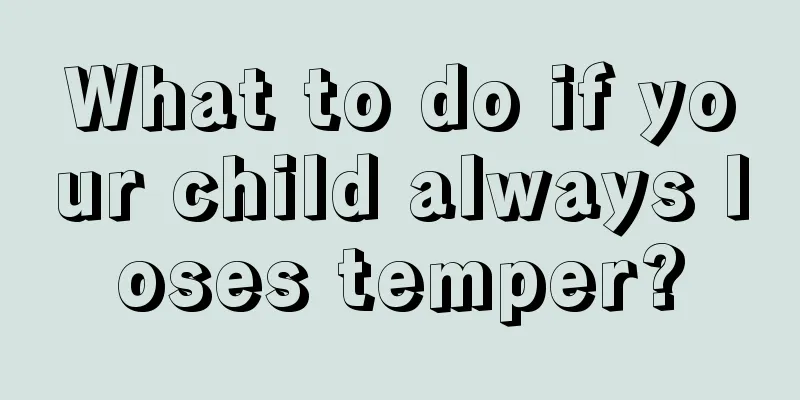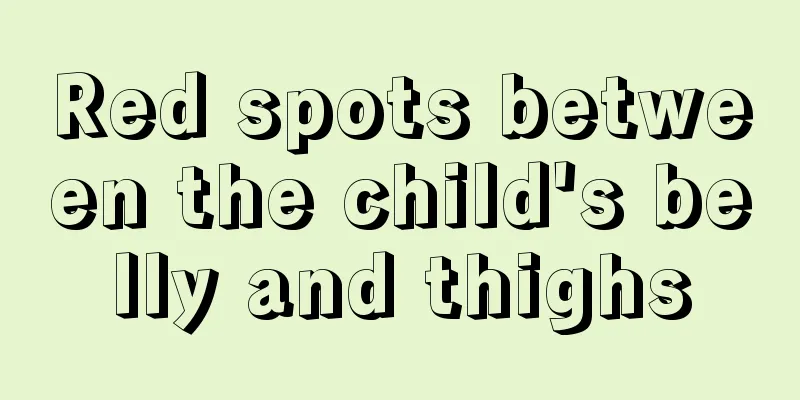What should I do if my baby has a high fever and convulsions?
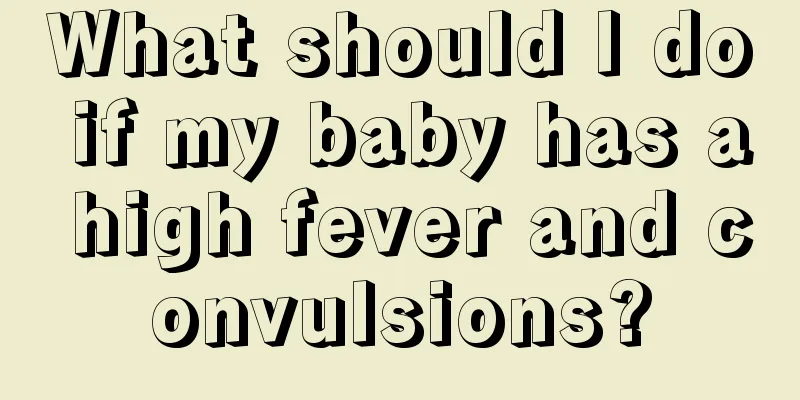
|
Babies who are not in good physical condition are definitely prone to illness because their immunity is relatively low, which is somewhat related to their parents' genetics. Under this premise, parents should always take good care of their babies, otherwise if they get sick, it may cause bad consequences. Take the baby's fever as an example. If it is serious, convulsions will occur. So, what should I do if the baby has a high fever and convulsions? A baby's fever and convulsions are medically called "febrile convulsions". This is mainly due to the imperfect development of the infant's nervous system, such as poor inhibitory function of the cerebral cortex and incomplete formation of the nerve myelin sheath. Once stimulated by external stimuli, the excitement can easily spread and cause convulsions. Generally speaking, infants and young children between 6 months and 4 years old, especially those who often catch colds and fevers, are more likely to suffer from febrile convulsions. Convulsions usually occur when the baby has a high fever, such as a body temperature of 39℃-40℃, and last for a relatively short time, about 2-3 minutes, and generally do not exceed 10 minutes. After the convulsion stopped, the child woke up. Adjust your posture When your baby has a seizure, lay him or her flat on his or her back, making sure he or she is not touching any sharp, hard objects. Later, lay your child on his side to allow him to breathe more easily and prevent saliva or vomit from blocking his trachea. Do not try to pry your child's mouth open; a child who is having a seizure due to a fever or other cause is not in danger of biting his tongue. Frequent ventilation If there is air conditioning at home, maintain the room temperature between 25 and 27 degrees Celsius. You can place the child in an air-conditioned room or use an electric fan to blow around him to slowly lower the body temperature, so that the child will feel more comfortable. But if the limbs are cold and the patient is shivering violently, it means that the patient needs warmth, so he should be covered with a blanket. Take off your clothes If your baby's limbs, hands and feet are warm and he is sweating all over, it means he needs to dissipate heat and he can wear less clothes. Wipe with warm water Undress your baby and rub his whole body with a warm towel. This will dilate the blood vessels in the baby's skin and release body energy. In addition, when water vapor evaporates from the body surface, it will also absorb body heat. Drink plenty of water To help sweating and prevent dehydration. Water has the function of regulating temperature, which can lower body temperature and replenish water lost in the baby's body. |
<<: What is the cause of convulsions caused by fever in children?
>>: Why do children develop eczema around their mouths?
Recommend
How to care for a three-month-old newborn
As we all know, a newborn baby needs the care of ...
Children's limbs are not coordinated, four ways can solve it
With the improvement of living standards, many ch...
Why does my baby have a runny nose and a stuffy nose?
Many parents will find that their babies often de...
What are the causes of cerebral atrophy in children?
Infantile brain atrophy is also known as spinocer...
How to teach children addition and subtraction?
As children grow older, parents will send them to...
Junior high school summer vacation schedule
Developing good work and rest habits is of great ...
What causes chronic anorexia in children?
Children are a special group of people. If they a...
What are the early symptoms of avascular necrosis of the femoral head in children?
In our impression, femoral head necrosis should o...
Normal values of developmental indicators for three and a half year old babies
Babies are growing up over time. They are no long...
There are several stages in a child's separation anxiety period.
In fact, most parents will face separation anxiet...
What should I do if my child has prickly heat all over his body?
In the summer, because the weather is too hot, ma...
What should I do if my 6-year-old child has tooth decay pain?
Even if there are adults around who constantly re...
How to clean the baby's nose?
Many mothers will find that there is a lot of boo...
What are the reasons for children to become fat?
Many babies are actually very fat when they are j...
What should children eat when they have prickly heat?
Children are very prone to prickly heat, especial...
